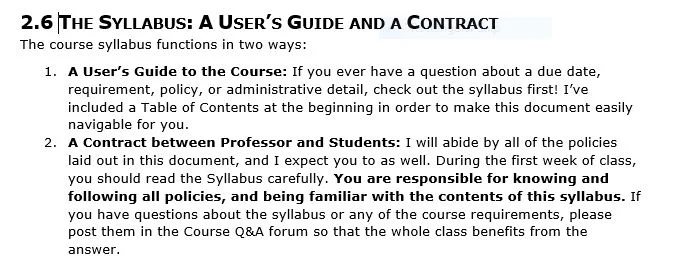The Late-and-Missing Work Conundrum, Part 3: Policy Solutions
In Part 1 and Part 2 of this series, I discussed the challenge of late-and-missing work policies. In my teaching experience, I’ve found that a traditional approach (e.g. zeroes for missing work and significant penalties for late work) leads to problems, such unfair advantages to students who are assertive enough to ask for exceptions, penalties that discourage students from persevering in the class, and more. In response to this challenge, I developed a new late-and-missing work philosophy.
Philosophy
I believe that policies on late-and-missing work should:
- Acknowledge that students are whole people who make choices to meet or miss deadlines based on priorities in their own lives
- Encourage students who miss a deadline to get back on track with subsequent assignments and complete the course successfully
- Allow flexibility where possible and reinforce firm deadlines where flexibility is not possible
- Reward timely progress by providing incentives for on-time work
Policies
My next step was to create policies that put these goals into practice. Here’s an overview of my current late-and-missing-work policy:
Missing Work Counts as an F
My syllabus states that missing work counts as an F, which could be any numerical grade from 0 to 59. In practice, I now count missing work as a standard F (50), so that students who miss assignments are penalized, but the penalty isn’t so great that it discourages them from making an effort to improve on future assignments.
Some Assignments Can’t Be Submitted Late or Made Up
Certain types of assignments, such as weekly discussion posts, are not accepted late, and there are no opportunities for make-ups or extensions. These policies emerge organically from the type of assignment. For example, discussion is participatory: students who post after the weekly discussion has concluded cannot engage in conversation with their classmates.
Some Assignments May Be Submitted Late with No Penalty
Some assignments, such as essays, may be submitted late with no penalty, for a fixed period after the due date (typically one week). With this policy, there is no need for students to ask for extensions, since everyone can take up to a week’s grace period after the due date. In order to keep students on track with the course schedule and manage my own grading workload, no assignments are accepted more than a week late, for any reason.
On-Time Work Is Rewarded with a Significant Bonus
Students who submit all assignments on time will receive a significant “extra credit” bonus to their final course grade. The bonus is enough to bump a student from one grade category to the next, for example, from a B+ to an A-. This policy rewards diligence and provides an incentive for timely assignment submission.
The Syllabus Explains the Policy Rationale
In keeping with my general belief that students will be more engaged when they understand why you’ve developed specific policies, my syllabus explains the rationale behind these late-and-missing work policies. Justifying the policy also enables me to enforce it consistently.
For a sample of my current late-and-missing work policy statement, please see here.
How Did the Policies Work in Practice?
After one semester of trying these new policies, I was generally pleased with the results.
What Worked Well
From my perspective as an instructor, the policies achieved my goals. I was no longer beset with emergency extension requests, because all students had the opportunity to submit late essays without defending their need for extra time. The generous grace period also gave me confidence in enforcing the whole suite of policies; I stuck firmly to the principle of not accepting essays beyond one week after the deadline and not accepting certain types of assignments late at all.
I implemented these policies in three courses during the Spring 2017 semester, and I was surprised to discover that the percentage of students who earned the “on-time bonus” was remarkably consistent, hovering right around 50% in all three classes. In other words, in each class, about half of the students took advantage of the ability to submit late essays with no penalty.
In addition, significantly fewer students than usual failed my classes due to missing work. Students who missed one major assignment seemed less likely to disappear and more likely to persevere and complete other work in the class.
Space for Improvement
As with anything, the new system wasn’t completely perfect. For example, I discovered that the value I initially chose for the “on-time bonus” was too large, and in subsequent semesters I plan to tweak the exact number to achieve a balance of rewarding diligence while not contributing to grade inflation.
In addition, I’m still not entirely satisfied with my solution of counting missing work as an F/50 rather than an F/0, which means that it is mathematically possible to (barely) pass a class without completing several assignments. I want students to be able to recover after a significant failure, such as missing a single essay, however I don’t think that it’s fair for a student to miss multiple major assignments and still earn credit for the course. One potential solution to this dilemma would be to add an additional policy stating that regardless of your course average, missing a certain portion of major assignments is grounds for failure.
In the Future
I plan to continue to use and refine these late-and-missing-work policies in future semesters. Part of teaching is experimenting with ways to improve your practice, and these policies are something that I first tried implementing last semester, so they’re still a work-in-progress.
Coping with late and missing student work has been one of my greatest policy challenges as a teacher, and I hope you’ve found this “deep dive” into my thought processes and course development to be useful. What types of late-and-missing-work policies do you think are best?




